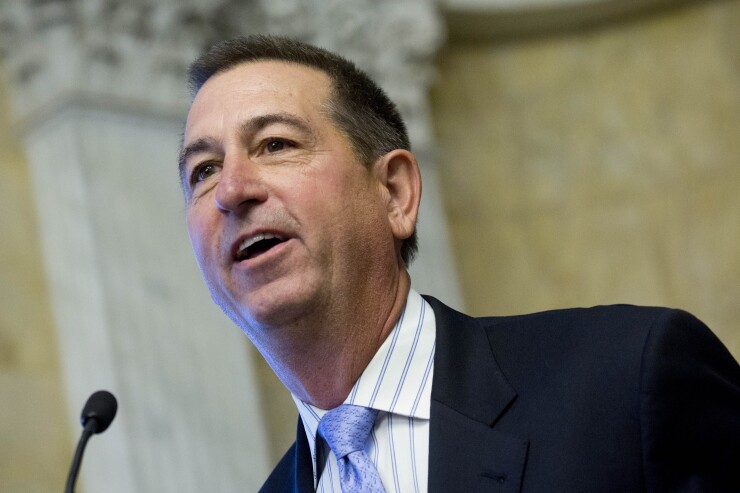WASHINGTON — A federal judge has dismissed a case brought by the Conference of State Bank Supervisors challenging the legality of the Office of the Comptroller of the Currency's fintech charter.
Judge Dabney Friedrich of the U.S. District Court for the District of Columbia ruled that the case could not proceed because the OCC has not actually granted the fintech charter to any firm.
“There may ultimately be no case to decide at all if the OCC does not charter a Fintech,” Friedrich wrote in her decision dated Monday. “Therefore, even if CSBS had successfully alleged an injury in fact, this case is prudentially unripe.”

CSBS and the New York State Department of Financial Services had filed separate lawsuits challenging the OCC fintech plan, which was spearheaded by former Comptroller Thomas Curry. State regulators argued the effort exceeded the OCC’s mandate, and that the agency’s actions to create a new charter violated both the National Banking Act and the 10th Amendment to the Constitution, which relegates authorities not specifically enumerated as belonging to the federal government to the states.
A judge
Otting said in a press conference in December that there is a place in the banking world for some kind of fintech charter, though the exact parameters of such a charter are still unclear and have to be worked out.
“I’m not sure what it looks like, and how it's funded, but I do think there’s a space there that a technology solution can solve,” Otting said. “Then the question is, what is the requirement on the fintech to get that charter?” (An OCC spokesman declined to comment on the dismissal of the CSBS suit.)
Fintech firms have complained that the state-based licensing process poses challenges for operating on a national scale, making a single-charter option appealing. But state regulators have sought to harmonize their system so firms can more easily set up shop in multiple states. In February, seven states
“State regulators continue to supervise a vibrant financial services market of banks and nonbanks alike, promoting access to innovative products while ensuring consumer protection," John Ryan, the bank supervisor group's CEO, said in a press release Tuesday. "Indeed, states are actively modernizing financial regulation by moving towards an integrated, 50-state system of licensing and supervision for fintechs and other nonbanks.”





